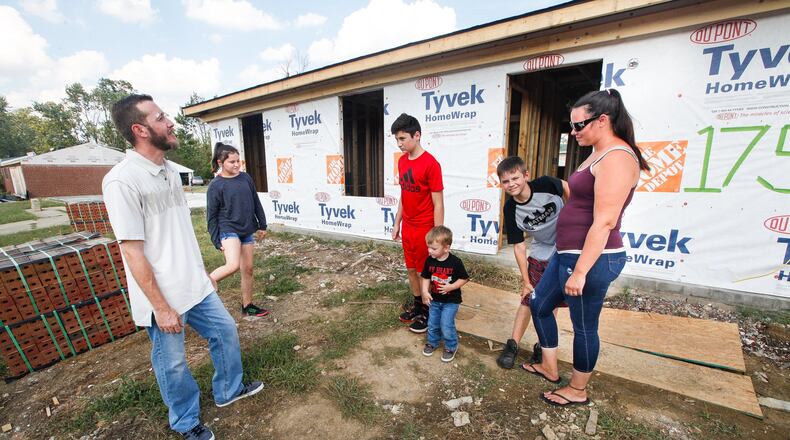Gloria Pennington, whose Brookville home was destroyed in the 2019 tornadoes, feels connected to the newly affected individuals.
“I stayed up the entire night when my family slept so I could watch the weather the other night when they hit Tennessee and Kentucky,” she stated. “It’s still very terrifying for us.”
Local residents expressed their concern and support for those affected, while they are still working to rebuild their own lives and communities.
Laura Mercer, executive director for the Miami Valley Long Term Recovery Operations Group, said it can be very difficult for people to find stability in the aftermath of a disaster.
“Recovery for individuals that are impacted by disasters is really a unique and individual thing to each family — what their situation was before, what recovery looks like for them,” Mercer said.
She said it’s important for those impacted to stand up for themselves and their fellow community members in times of need.
“From the survivor standpoint, my advice would be, be an advocate for yourself and be tenacious,” Mercer said. “Often, it’s just a matter of hanging in there.”
John Pyron grew up near the town of Mayfield, Ky., which was an epicenter of Friday’s tornadoes. In 2019, while he was living in the Dayton region and working as Lutheran Social Services’ statewide director for disaster services, the Memorial Day storms passed within two miles of his home. His experience has demonstrated the importance of community in the aftermath of disasters, he said.
“I think the hope in this whole process is communities are resilient and people are resilient inherently,” he said. “You’re not alone, we don’t have to be alone, we don’t have to do anything alone.”
Despite the tragedy and trauma that accompany them, disasters often present the chance to make lasting change, Pyron added.
“I think the courageous thing to do is to recognize that disasters disproportionately affect those who are vulnerable in the community,” he stated. “I think disasters offer a very unique opportunity for communities to courageously look at some of the wounds and historical trauma that have been at play in their communities.”
Many Dayton residents know what it’s like to have their lives permanently altered by the events of a natural disaster. The storms that wreaked havoc in the south have struck a chord within the community, inspiring compassion among many Dayton tornado survivors.
Trotwood resident and tornado survivor Jessica Brady encouraged the survivors from the impacted states to remain optimistic even during this time of great uncertainty.
“Just don’t give up,” Brady said. “Help will come. I mean, it might take a while. But just be thankful that you’re alive. That’s really all that matters.”
Also prevalent among community members was a desire to come to the aid of those who have lost property or loved ones. Wanda King recalled how her community rallied around her after a tornado decimated her home and barn in Perry Twp.
“My heart just breaks,” King said. “You feel like you want to pack up and go down and help, like everyone helped us.”
These communities struck by the recent wave of tornadoes are faced with a road to recovery that has no definitive timetable. Recognizing this uncertainty and uniting to address it are keys to moving forward, according to Sally Dyer, who is a member of Presbyterian Disaster Assistance’s National Response Team, a church group dedicated to providing aid in the wake of natural disasters in the United States.
“I think that acknowledging that this is going to be a long process is the first step,” Dyer said. “Also, having organizations working collaboratively and together. Dayton was a great example. Our long-term recovery team came together pretty quickly, given the magnitude of the damage and the widespread damage that happened across our county and other counties.”
About the Author


